"Where were all the anarchists during Covid 19?"
"Where were all the anarchists during Covid 19?"
This is a wide-ranging interview I recently did with two anarchist pro-freedom campaigners, MA and WS, from Brighton, England. Illustration by Ken Avidor.
WS: Please could you introduce yourself and say how you came to be a writer and create the website Winter Oak?
Paul Cudenec: I am a former professional journalist, who slogged away for 25 years on a local newspaper in Sussex, and have also been an active anarchist since the mid 1990s. Ten years ago I took voluntary redundancy to concentrate on my own writing, then moved to rural France. I initially created Winter Oak as a vehicle for publishing my books but over the years the site has increasingly become the focus of my writing activity, in particular my exposures of the global power nexus, which were lent new urgency by the Covid moment.
WS: How would you define ‘anarchism’? Is it left wing or right wing or beyond both paradigms?
PC: It is beyond those one-dimensional labels. Anarchists reject authority on the basis that we are naturally capable of running our own lives and communities without top-down control from self-appointed rulers and exploiters. We extend the principle of self-determination down to grassroots level, to individuals. Power should rise up from below, in co-operation and mutual aid, rather than be imposed from above. This is not a message that is generally appreciated by either the political left or political right, which are merely two legs of the same ever-advancing body of control and exploitation.
WS: Why did 99% of the organised anarchist movement worldwide follow the Covid 19 narrative? Why totally no push back and even attacks on those who were questioning the narrative and challenging those in power?
PC: This is a question that much occupied me in 2020! I couldn’t understand it at all. After several years of research I have understood the way that anarchism (like other political and cultural movements) has simply been taken over by the system, turned round and pointed in the opposite direction.
WS: You recently wrote a book on the great reset from an anarchist perspective but have in the past suffered much in criticism from elements within the anarchist movement in respect of your opposition to the great reset etc. Why is this?
PC: The criticism is ongoing, in fact. I find it incredible that self-identified “anarchists” could regard it as a bad thing to challenge the imposition, by fraudulent means, of a global corporate dictatorship! The only way this could have come about, in my opinion, is that the movement has been infiltrated and ideologically polluted on a massive scale. Those who have gone along with this merely out of compliance to groupthink cannot really call themselves anarchists. Anarchists should think for themselves, on the basis of their own conscience and not because of social pressure.
WS: What evidence may there be in your mind that certain protest groups like Antifa, BLM and Extinction Rebellion are state operations and in a sense ‘storm troopers for the establishment’?
PC: The evidence is not in my mind, but very real! I have researched and written a number of articles exposing their connections to what I have taken to calling the criminocracy – the self-concealing web of foundations, charities, investment funds and national and international institutions that controls much of our social structure. Although activists in these groups are no doubt genuinely motivated by the advertised principles, these movements are definitely being manipulated for an overall agenda tied closely to transhumanism, impact capitalism and digital public-private global totalitarianism. Not only do these controlled groups replace genuine movements and steer activists into directions favoured by the system, but they are also used to attack genuine dissidents, in a false-flag fashion, deploying the self-righteous fury of woke ideology to impose conformity to corporate-friendly attitudes.
WS: Has the anarchist movement been co-opted if not just by the state but also by cultural marxist ideology and hence become itself authoritarian? Aren’t then those anarchists just closet communists or socialists? Particularly in the sphere of contemporary ‘identity politics’ and climate change’?
PC: I am never quite sure what is meant by “cultural marxism” but I do think that perhaps the initial assault on authentic anarchist thinking came from that direction. By absorbing too many Marxist assumptions and prejudices, such as a rather rigid economic analysis, a dogmatic attachment to industrialism as a means of emancipation, and by often labelling themselves “libertarian communists” rather than as anarchists (for reasons which I have never understood), people in the anarchist movement started becoming less anarchist, less inspirational, more pedantic, flat and boring like the rest of the left. Once this softening-up process has done its work, undermining any real instinctive feeling for anarchism, repelling real anarchists and attracting non-anarchists to this increasingly non-anarchist movement, the ground was ready for the next stage, of corruption by identity politics, by fake-green “climate” activism, by woke cancel culture and all the absurdity, narrow-mindedness and intellectual aggression that goes with it.
WS: What changed that the anarchist movement at the turn of the millennium was anti-globalisation (one thinks of the WTO protests) but now is progressively pro-globalisation (one thinks of those anarchists and leftists etc who staged a counter protest against those challenging peacefully 15 minute cities in Oxford recently)?
PC: Yes, two decades ago, anarchism was at the heart of the anti-globalisation movement that was mobilising tens of thousands of people all over the place against centralised worldwide corporate-financial control. That revolt came to a halt with 9/11, in 2001, and there followed two decades of ideological reorientation. Now “mainstream” anarchist voices condemn opposition to globalisation as “far-right conspiracy theory”! I increasingly suspect the process has been a planned and deliberate ideological dismantling of what was a powerful current of resistance challenging the global mafia’s plans.
WS: In many of your books, you discuss religion and spirituality; why do you think historically anarchism is always seen as inherently atheistic and anti any concept of God, divinity, soul or spirit?
PC: I suppose this element in anarchism originally sprung from opposition to organised religion which worked in tandem with secular authorities to keep the people in their place. When this is combined with the influence of “progressive” rationalist thinking, it turns into a dogmatic rejection of anything to do with soul or spirit. What I have tried to show in my writing is that, in fact, the anarchist philosophy is a political manifestation of the understanding of the human role as expressed by all the world’s spiritual traditions. Anarchists – authentic ones, anyway! – regard the individual as part of a greater whole, but insist that they must be free to follow their own innate moral compass, safe in the knowledge that this will also be the innate moral compass of the community. The anarchist faith in ethics, in the basic goodness of human beings and the way that we trust them to run their own lives without being policed by authority, stems, in my view, from the understanding that the divine is within all of us if only we would allow it to shine and guide our thoughts and actions.
WS: You appear to be a ‘perennialist’ in personal outlook as regards belief and faith; do you have any religious practice or particular spiritual path that you follow? How would you distinguish perennialism from the new age movement and ethos?
PC: I have not (yet) found a religious practice or spiritual path that I want to follow, but instead have evolved my own approach. I would say that this is based on my strong sense of belonging to the natural world, and indeed the cosmos as a whole, and also on a sense that the only meaning in my life is to try to do the will of that overall living entity of which I am but one tiny part. I have been inspired by medieval Christianity, Sufism, Hinduism, indigenous American spirituality and in particular by perennialists like René Guénon, Ananda Coomaraswamy and Frithjof Schuon who see a common ur-faith at the centre of the circle of superficially different faiths. I suppose the main difference with New Age thinking is that the traditional source is crucial for perennialists. You can’t just make stuff up because it sounds nice. I personally have a problem with the kind of “spirituality” which promotes disengagement from the world and non-resistance to evil. As an antidote, I recommend the work of Sri Aurobindo, an anti-imperialist freedom-fighter whose spirituality embraces the necessity to become strong enough to give oneself, selflessly, to the fight for all that is good and living and beautiful.
WS: Are there any other anarchist groups that were sceptical of the covid narrative and challenged the lockdown and are active in opposition to the great reset etc?
PC: There are people scattered around the place, who are now regrouping. Nevermore Media, in North America, has been an important voice for anarchist “heresy”, as has Food Not Bombs founder Keith McHenry, with whom I conducted an interview in 2022. There is also Counterpropaganda in Spain, Resistenze al Nanomondo in Italy, a group of green anarchist comrades in Croatia – pockets of resistance everywhere! In the UK I have been working with Real Left, which includes some anarchists, and The Stirrer has been a rock of anarchist authentity. Others have been in touch to say that they agree with me, but hesitate to go public. I suspect that the pro-Reset “anarchists” will be increasingly ignored as time goes on.
MA: Do you know any anarchists in France who didn’t go along with the official covid narrative?
PC: One or two. There are also one or two people who didn’t go along with the official narrative who have subsequently realised that they are, in fact, anarchists! But in the main the reaction was the same as on the UK anarchist scene – almost as if it was in some way centrally co-ordinated… There was one local anarchist (or libertarian communist) group here which mobilised against vaccine passports in 2021, while insisting that the “vaccines” were themselves a good thing and that fellow protesters should not challenge the science! I have subsequently found myself back on the same side of the barricades as them (and the rest of the left) over the pension reforms issue, but my faith in where their allegiance ultimately lies has been seriously shaken.
MA: How difficult was it for unvaccinated people in France during the vaccine mandates? How much non-compliance generally do you think there was in France to lockdowns and getting the jab?
PC: Well, we could still go into shops, apart from certain huge hypermarkets that I don’t frequent anyway. But you couldn’t drink a coffee in a café. I once stopped off in driving snow in the mountains, waited at the bar to be served, unmasked, for ten minutes in a café full of people, only to be told that without the vaccine passport I could only buy a take-away. So I had to down my espresso outside in the snowstorm! A couple of decent restaurants agreed to feed me and a friend, as we travelled across France in the summer of 2021, if we didn’t stay too long, while stressing that they could go to prison for doing so! Generally levels of compliance were depressing, but I think that maybe non-compliance was largely hidden from view. People did keep holding family gatherings and so on. I have also heard about fake vaccine records. One encouraging lockdown phenomenon was flash mobs, where people popped up all over the place, outside government buildings and in railway stations, dancing to a beautiful and defiant song by HK et Les Saltimbanks. There were no major pro-freedom protests here until vaccine passports were introduced and then it really took off, to my delight!
MA: Do you think a lot of people in France feel that the terms ‘left’ and ‘right’ are meaningless now? Did the Gilets Jaunes and more recently the pension protests bring together different types of people (political, non-political, voters for different parties, non-voters, etc.)?
PC: Yes, it’s been going that way, since the Gilets Jaunes achieved the seemingly impossible feat of attracting to their ranks both the “far left” and the “far right”, as well as many in between. The broad opposition to vaccine passports, pension reforms and the corrupt Macron regime as a whole, has certainly helped that process along. But the system is doing its best to reinforce the old divide… The radical left opposition in parliament (the rough equivalent of Corbyn’s Labour, I suppose) comes under constant attack from the corporate media, accused of being “islamo-leftist”, supporting violent rioters and so on. The recent unrest may have pushed many fearful folk temporarily back into the “law and order” camp, unfortunately, prompting the question as to whether or not we are witnessing a 21st century version of the “strategy of tension” deployed by the Italian state four decades ago.
MA: In France and worldwide, what hope do you think there is that the people will unite against the oppressors and do you think many anarchists will come creeping back with their tails between their legs to join that movement, finally seeing through the lies?! How important is it that they do that; do we need them?
PC: If enough of us want, and will, such an uprising to happen, then it is inevitably going to do so. There are plenty of signs that the powers-that-be have noticed this broad revolt beginning, hence their increasingly desperate attempts to smear, censor and silence us. It would be nice to think that certain “anarchists” will have to eat their words and join us on the free side of the barricades, but, no, we don’t need them. The great German anarchist Gustav Landauer said that we should never worry about a potential lack of revolutionaries, because when the revolution happens they simply emerge, miraculously, from the population. We have already seen this with the new rebels against the Great Reset. It’s about time that anarchism, a beautiful, profound and powerful philosophy, had the followers it deserves!
WS: Is there anything more you would like to add or say?
PC: I would like to say that this is a very important historical period we are living through. The stakes could hardly be higher. If we don’t succeed in seeing off this attempted global coup, the future for humanity and our world looks bleak indeed. It is a difficult moment to be living through, but we are also blessed with being present in it, being able to do something to change the course of history. I would urge anyone who is not already doing everything they can (and I am sure many are!) to look deep inside their heart and ask themselves what they personally could contribute to tip the scales away from evil, slavery and destruction and towards good, freedom and life.
WS: Where can one find Winter Oak and find out more about your many books?
PC: The site is at www.winteroak.org.uk and if you go to the Books section you will find that all my work is available to download free as pdfs, as well as to buy as physical copies. I would also point people towards my parallel project, the Organic Radicals site at orgrad.wordpress.com, where I trace the diverse threads behind what I would like to become a powerful new philosophy of opposition to the corrupt modern world.
Source: Paul Cudenac
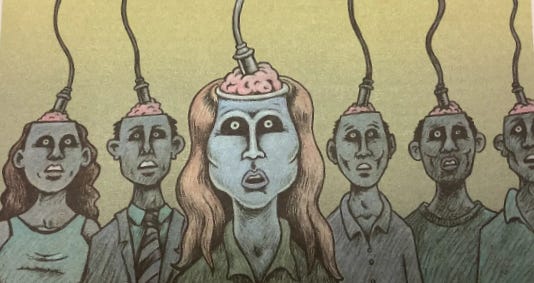

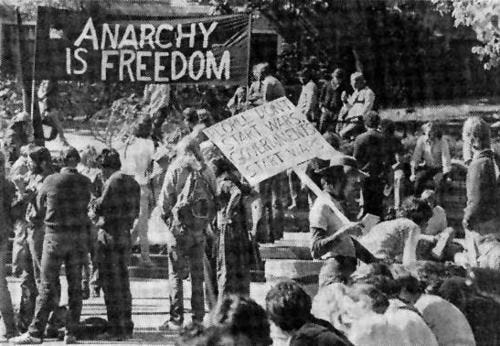
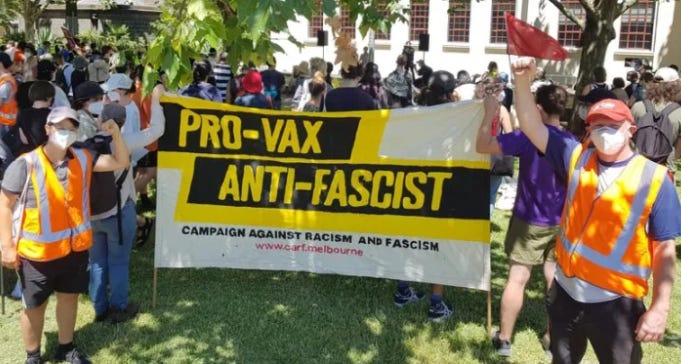
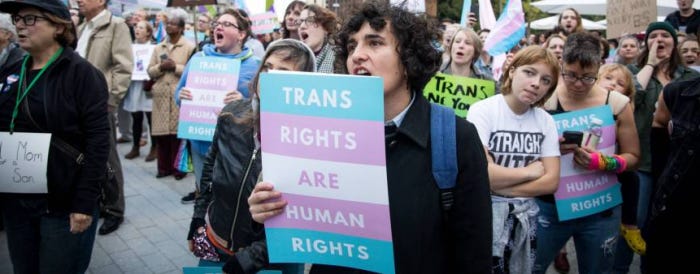
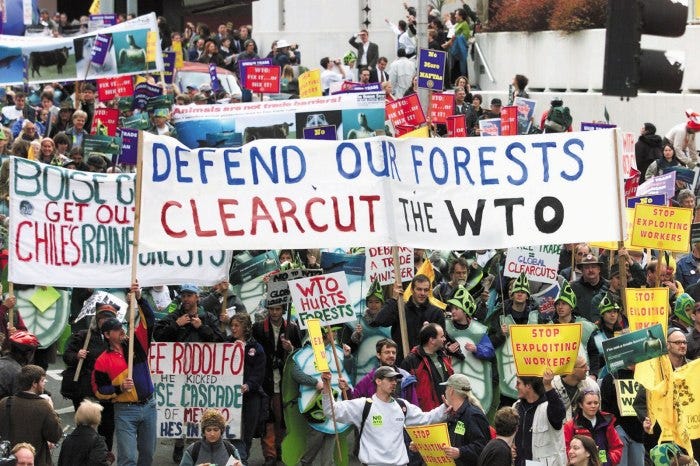
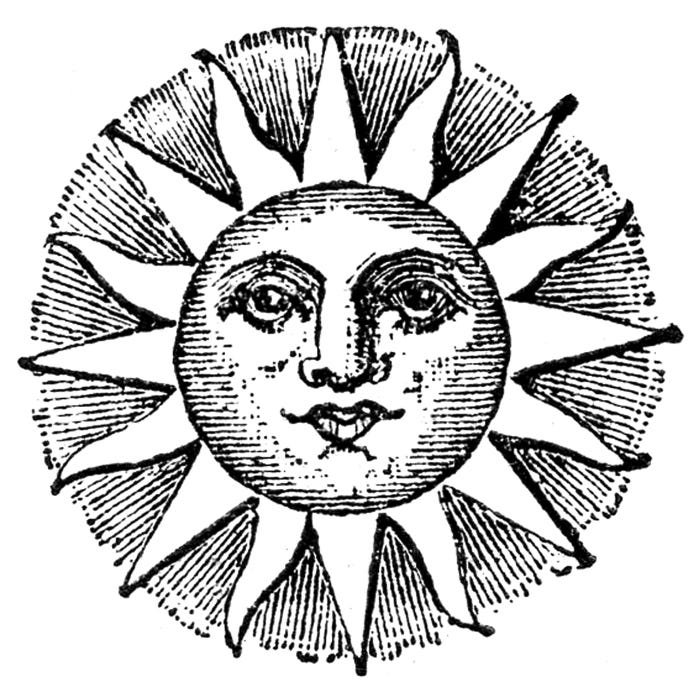
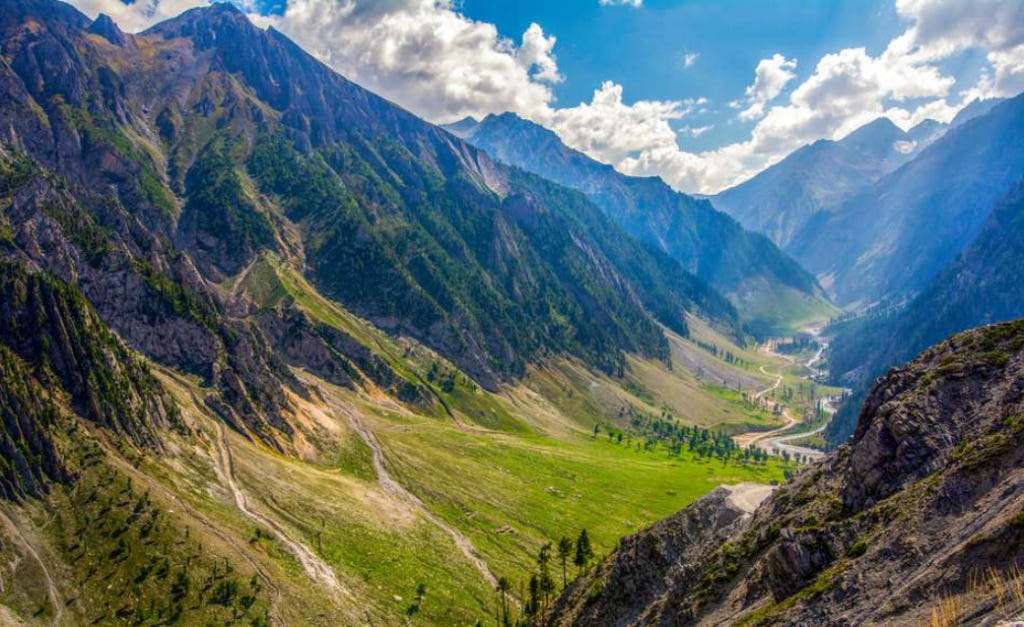
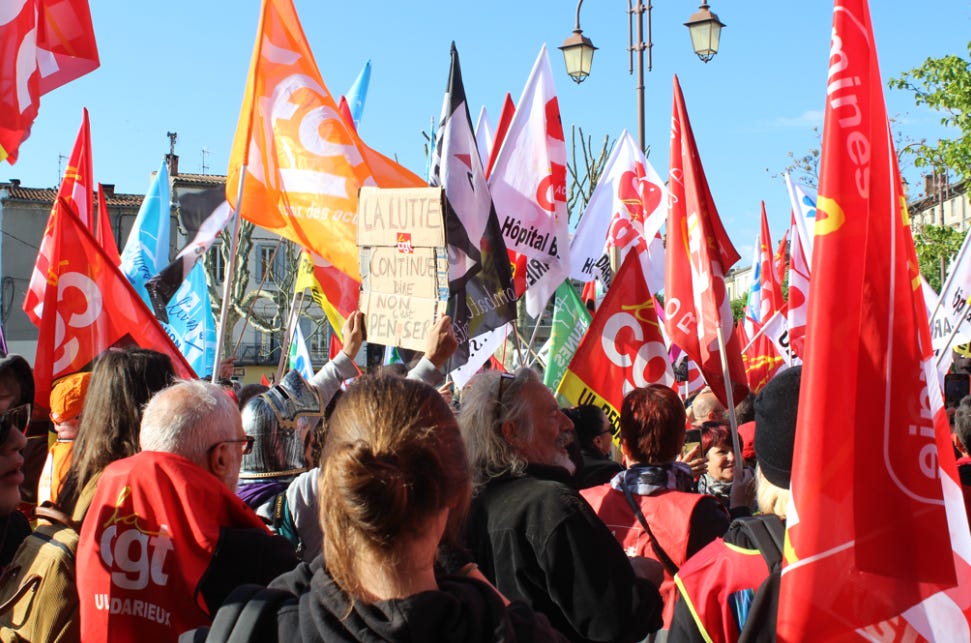

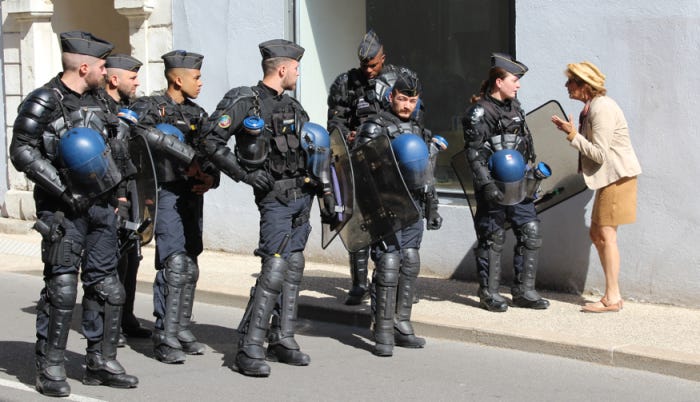

Comments
Post a Comment